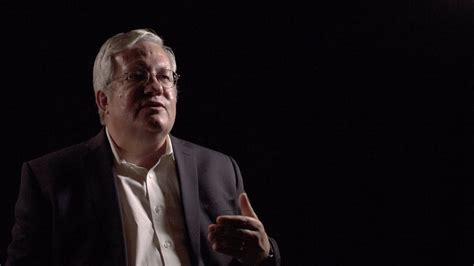A Quote by Joy Davidman
Many Christians, though keenly sensitive to the dangers of greed and discontent that come with an economy of continually increasing consumption, nevertheless feel that it is worth risking if only it can end man's physical miseries. The trouble is that it can't. In a finite world, continually increasing consumption is just not possible.
Related Quotes
Extrapolated, technology wants what life wants:
Increasing efficiency
Increasing opportunity
Increasing emergence
Increasing complexity
Increasing diversity
Increasing specialization
Increasing ubiquity
Increasing freedom
Increasing mutualism
Increasing beauty
Increasing sentience
Increasing structure
Increasing evolvability
The illusion that consumption - and its correlative, income - is desirable probably stems from too great preoccupation with what Knight calls "one-use goods," such as food and fuel, where the utilization and consumption of the good are tightly bound together in a single act or event. ... any economy in the consumption of fuel that enables us to maintain warmth or to generate power with lessened consumption again leaves us better off. ... there is no great value in consumption itself.
We have become a plague upon ourselves and upon the Earth. It is cosmically unlikely that the developed world will choose to end its orgy of fossil energy consumption, and the Third World its suicidal consumption of landscape. Until such time as Homo Sapiens should decide to rejoin nature, some of us can only hope for the right virus to come along.
For they (capitalists) hold as their chief heresy, in a coarser form, the fundamental falsehood that things are not made to be used but made to be sold. All the collapse of their commercial system in their own time has been due to that fallacy of forcing things on a market where there was no market; of continually increasing the power of supply without increasing the power of demand; of briefly, of always considering the man who sells the potato and never considering the man who eats it.
As mass production has to be accompanied by mass consumption, mass consumption, in turn, implies a distribution of wealth ... to provide men with buying power. ... Instead of achieving that kind of distribution, a giant suction pump had by 1929-30 drawn into a few hands an increasing portion of currently produced wealth. ... The other fellows could stay in the game only by borrowing. When their credit ran out, the game stopped.
About 75% of the price of gas is really dictated by crude oil. At the heart of the issue is increasing demand over a period of many years around the world. World crude oil consumption now is close to 90 million barrels a day. Most of the growth in demand is coming from China and the developing world.
The consumption of alcohol is increasing among youth. Targeting young audiences, advertisers portray beer and wine as joyful, socially desirable, and harmless. Producers are promoting new types of alcoholic beverages as competitors in the huge soft-drink market. Grocery and convenience stores and gas stations stock alcoholic beverages side by side with soda pop. Can Christians who are involved in this commerce be indifferent to the physical and moral effects of the alcohol from which they are making their profits?
It was only in the late nineteenth century and then the twentieth century, with the maturation of consumer capitalism, that a shift was made toward the cultivation of unbounded desire. We must appreciate this to realize that late modern consumption, consumption as we now know it, is not fundamentally about materialism or the consumption of physical goods. Affluence and consumer-oriented capitalism have moved us well beyond the undeniable efficiencies and benefits of refrigeration and indoor plumbing.







































